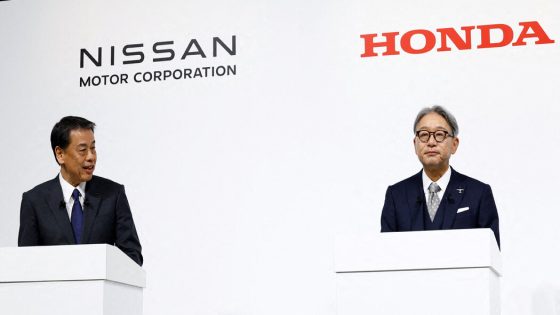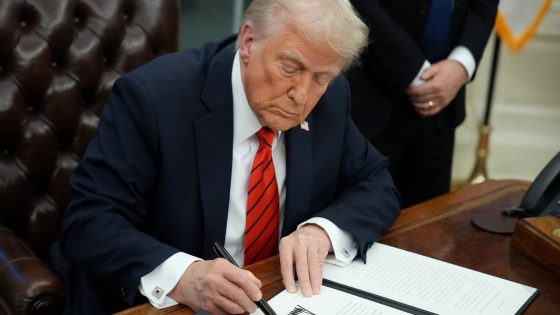On February 13, 2025, Honda Motor and Nissan Motor announced the cancellation of their proposed $50 billion merger, which would have created one of the largest automotive groups globally. The decision marks a significant shift for Japan’s second- and third-largest automakers, who had previously been exploring plans to combine operations to enhance efficiency and innovation in electric vehicle development.
- Honda and Nissan merger called off.
- Companies aimed to share costs and develop vehicles.
- Industry shifts away from large auto alliances.
- Competition from Tesla and BYD intensifies.
- Legacy partnerships struggle with new technologies.
- Honda and Nissan to continue software collaboration.
The proposed merger aimed to help both companies share costs and develop next-generation vehicles together. However, both automakers recognized that large-scale alliances may not be the most effective strategy to adapt to the fast-evolving automotive landscape. Traditional automakers are increasingly challenged by new entrants like Tesla and China’s BYD, which have established strong positions in electric and semi-autonomous vehicle technologies.
Industry experts, such as Lucinda Guthrie from Mergermarket, noted that the merger was a return to familiar strategies rather than an embrace of necessary changes. This sentiment reflects a broader trend where legacy automakers struggle to keep pace with technological advancements. Honda and Nissan will continue to collaborate on software and electrified vehicles, indicating a shift towards more focused partnerships rather than large-scale mergers.
As the automotive industry evolves, companies will need to adapt to new technologies and consumer demands. The failure of this merger highlights the difficulties faced by traditional automakers in navigating a landscape increasingly dominated by innovative competitors. The decision to withdraw from the merger talks may lead both companies to explore alternative strategies for growth and collaboration.
The cancellation of the Honda-Nissan merger underscores the challenges faced by established automakers in the current market. As they navigate technological advancements and competition, both companies will need to rethink their strategies to remain competitive in the evolving automotive landscape.






























![Will Avalanche [AVAX] Plunge Further? Bears Set Sights on $14.5 Support!](https://news.faharas.net/wp-content/uploads/2025/03/Will-Avalanche-AVAX-Plunge-Further-Bears-Set-Sights-on-145.webp.webp)


